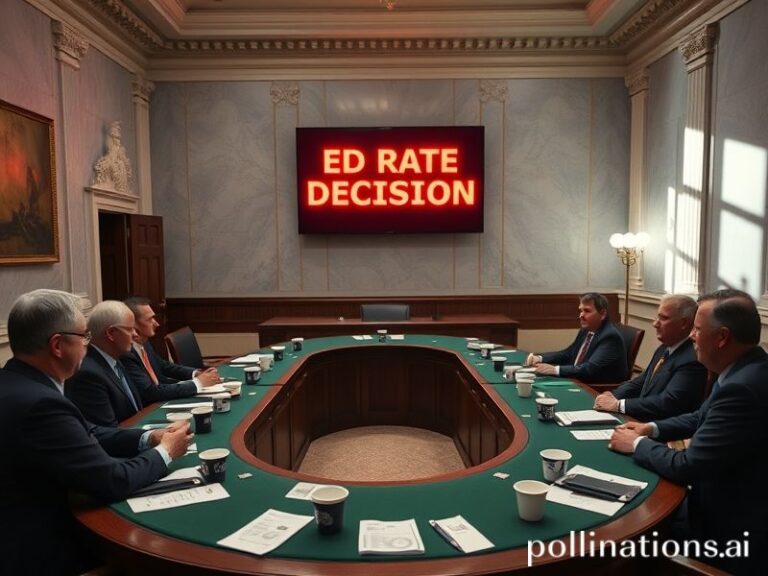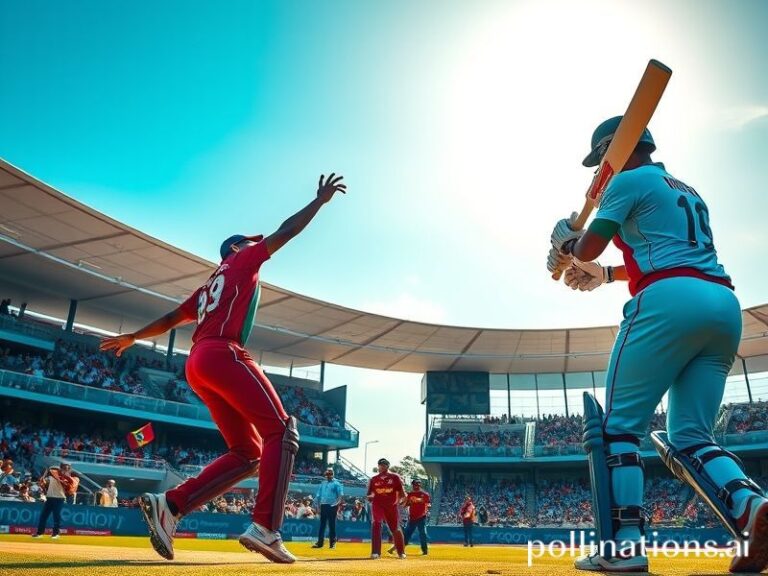The Welsh Tennis Player Who Accidentally Exposed Professional Sports as Performance Art
**The Accidental Oracle: How a Welsh Tennis Player Became the World’s Most Honest Prophet**
In an era where billionaires rocket themselves into space for sport and politicians discover new depths of shamelessness daily, humanity has improbably found its most authentic voice in a 25-year-old Welsh tennis player ranked outside the top 100. Adam Walton, a name that previously resonated only in the most obsessive tennis forums and among relatives who felt obligated to Google him, has stumbled into becoming an international symbol of something we thought extinct: a professional athlete who speaks as if he’s not reading from a PR-approved teleprompter.
The global significance of Walton’s recent press conference—where he admitted that most tennis players are “making it up as we go along” and that the sport’s ranking system resembles “a cryptocurrency scheme designed by someone with a head injury”—cannot be overstated. In a world where athletes earn more from Saudi sponsorship deals than prize money and where “growing the game” has become code for “extracting maximum profit from human rights violations,” Walton’s candor landed with the force of a confession in a Vatican elevator.
International observers, accustomed to the usual parade of athletic clichés about “giving 110%” and “taking it one match at a time,” found themselves experiencing a novel sensation: recognition. Here was someone acknowledging what everyone secretly suspected—that professional sports operate on a foundation of organized delusion, where grown adults chase fuzzy yellow balls while wearing the same expression medieval peasants wore when told the plague was God’s will.
The implications ripple far beyond tennis. Walton’s honesty about the absurdity of his profession—traveling 200 days a year to tournaments in cities that all feature the same airport Starbucks—mirrors the quiet desperation of millions who’ve realized their own careers are elaborate performance art. From Tokyo salarymen pretending to understand PowerPoint presentations to Brussels bureaucrats translating regulations nobody will read, Walton has given voice to the universal human experience of professional existential dread.
His fellow players’ reactions proved equally revealing. The ATP tour’s establishment responded with the kind of coordinated horror typically reserved for someone suggesting that maybe, just maybe, the Saudi Public Investment Fund isn’t genuinely interested in growing tennis’s global footprint. Their pearl-clutching only confirmed Walton’s thesis: professional sports have become too big to fail, too profitable to question, and too dependent on maintaining the illusion that hitting a ball over a net constitutes meaningful human achievement.
The international media’s frenzy tells its own story. British tabloids branded him “ungrateful,” American outlets questioned his “mental fitness,” and Australian commentators suggested he needed a “reality check”—apparently missing the irony that reality checks are precisely what Walton was delivering. Only the French seemed to understand, with *L’Équipe* declaring him “the only honest man in professional sport,” which coming from the French is either high praise or an indictment of their own sporting establishment, or possibly both.
What makes Walton’s accidental martyrdom globally significant is how it exposes our collective complicity in modern absurdities. We’ve built entire economies around activities that, when viewed from certain angles, make medieval flagellation seem rational. The difference is that medieval flagellants at least believed they were saving souls. Modern professional sports save nothing except quarterly earnings reports.
As Walton returns to relative obscurity—his ranking too low for the sport’s real money, his honesty too high for its comfort—he leaves us with a gift more valuable than any Grand Slam trophy: permission to acknowledge that much of what we call “professional achievement” is simply humanity’s most expensive distraction from the void. In a world teetering between artificial intelligence and actual stupidity, where truth has become just another brand to manage, Adam Walton’s fifteen minutes of honesty feel like a small victory for the human condition.
Which, given the state of the human condition, might be the most honest thing anyone’s said all year.







